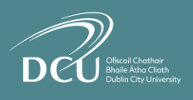About Psychology in Dublin City University
Why do this course?
The Psychology degree’s core subjects include research design, quantitative and qualitative methods, cognitive psychology, developmental and lifespan psychology, biological bases of behaviour, social psychology, personality and individual differences, educational psychology, sports psychology, health psychology and organisational psychology. In addition to the core subjects, you can also choose from a range of optional modules from a variety of discipline areas.
This degree places particular emphasis on the application of psychology. For example, you’ll participate in experimental, practical, survey and observational work. This will allow the development of expertise in practical-based psychological methods while deepening your understanding of the theoretical knowledge you are acquiring. You’ll undertake an independent research project in Year Four, which will give you the opportunity to use these valuable skills.
What opportunities might it lead to?
Most students study psychology because they aim to pursue a career as a psychologist. However, others choose to study psychology because it offers a broad training in a behavioural science, it develops a wide range of valued transferable skills and it can be used as a stepping stone into several other careers. Studying with us at the School of Psychology opens up a wide range of postgraduate training and career opportunities. With further professional education and training, one can work as a psychologist in professional settings such as clinical, counselling, organisational, health, educational, sport, forensic or academic settings.
Job options for graduates include:
- Assistant psychologist positions
- Marketing
- Management
- Research
- Data analysis
- Human resources
- Health promotion
- Community development
Academic qualification equivalents
- Standard 12 through a recognised awarding body with average grades of 80% or above. Please note an average of all subjects studied will be taken. Mathematics and English must be included.
English language requirements (one of the below):
- IELTS for Undergraduate Programmes: Overall score of 6.5 or above, with no less than 6.0 in any one skill.
- TOEFL: Total Score of 92. DCU Business School additionally requires all section scores 21 or above.
- PTE Academic: Minimum score of 63, with no section score below 59
Dublin City University Highlights
| University Type |
Public University |
| Campus Setting |
Urban |
| Establishment Year |
1975 |
| No. of Campuses |
3 |
| No. of Residence Halls |
3 |
| International students |
2,337
71% in UG, 29% in PG courses |
| Research Funding |
~35 million EUR |
| Cost of Attendance |
~22,500 EUR |
| Applications Accepted |
Online/Offline |
| Work-Study |
Available |
| Intake Type |
Semester wise |
| Mode of Program |
Full time and online |
Dublin City University Average Tution fees And Other Expenses
Foreign students who wish to enrol at Dublin City University must be aware of the associated costs in order to budget appropriately and apply for scholarships when needed. The tuition costs for well-known programmes and other expenses related to studying in Ireland are covered below.
Tuition Fee for Dublin City University
Here are the details of the UG and PG fees for international students planning to study at any of the following faculties.
| Programs |
UG (EUR) |
PG (EUR) |
| Engineering |
15,000 |
17,000 |
| Business |
14,000 |
16,000-19,000 |
| Humanities |
15,000 |
15,000 |
| Science |
15,000 |
15,000 |
| Education |
12,600 |
13,700 |
Dublin City University Cost of Living
The cost of living here includes monthly expenses an international student would require to study at Dublin City University:
| Expense |
Monthly Cost (EUR) |
| Rent (On-campus) |
692-1216 |
| Rent (Off-campus) |
850-1300 |
| Food |
250 |
| Travel |
132 |
| Books and Materials |
75 |
| Medical |
45 |
| Miscellaneous |
178 |
| Total |
Approximately 2,222 |
